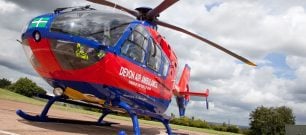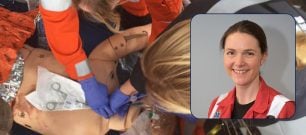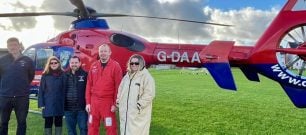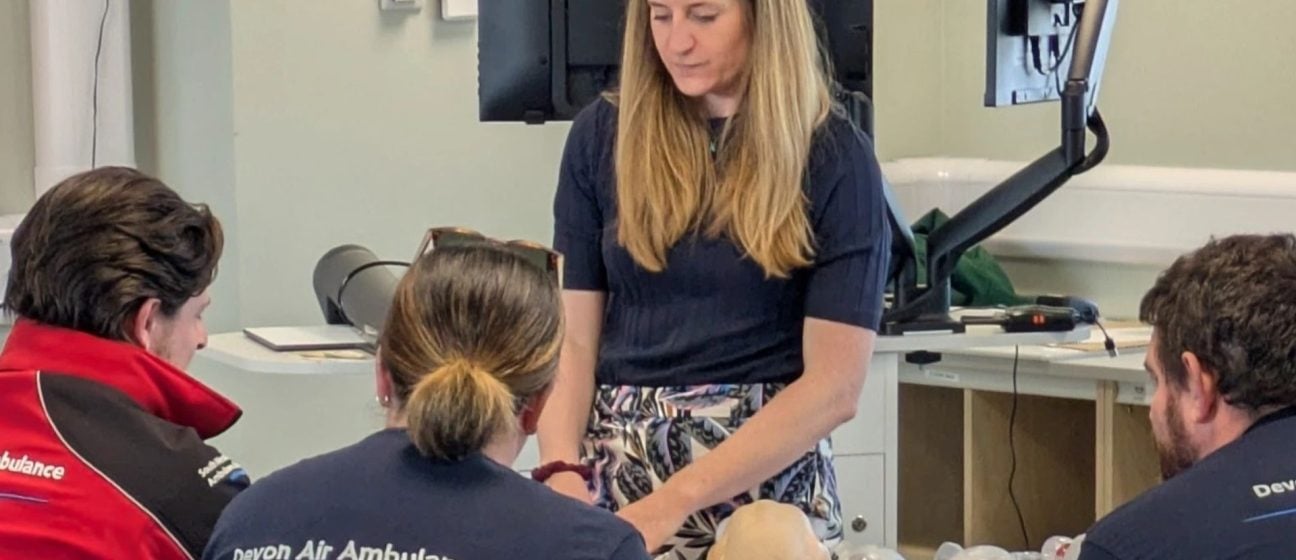
Learn more about the world-leading training our crews undertake to improve outcomes for our patients.
Devon Air Ambulance clinicians are continually undertaking world-leading training to increase the chances of a positive outcome for patients. Advanced pre-hospital Practitioner and Clinical Educator, Alex Sanders-Page shares insights into recent training undertaken by our team.
On May 14th, members of the Clinical Operations team participated in a specialised training day to master infrequent, yet critical surgical skills known as HALO (High Acuity Low Occurrence). These skills, while seldom needed, are essential for delivering life-saving care. The training day emphasised not only the technical aspects of these procedures but also the human factors, logistics, and challenges of performing them in pre-hospital settings.
Thanks to Plymouth University’s Paramedic faculty, the team utilised a dedicated clinical training space, complete with an ambulance and simulated home environment. This realistic setup provided invaluable opportunities to practice techniques under conditions similar to real-life emergencies.
Please note: the following describes details of surgical procedures as well as images featuring mannequins.
Practising key surgical skills
Thoracotomy
A thoracotomy involves opening the chest to access the heart in life-threatening situations, such as injuries from sharp objects. The procedure allows clinicians to repair heart wounds and, if needed, manually pump the heart to restore circulation. Simulated scenarios in the back of an ambulance helped the team prepare for the logistical challenges of performing this procedure in confined spaces.
The hardest part of a Thoracotomy is the decision to do it.
Dr John Hinds
Resuscitative hysterotomy
This rare intervention, often described as an emergency caesarean section, is performed when a pregnant patient suffers cardiac arrest. After 20 weeks of pregnancy, the womb’s weight can reduce the effectiveness of chest compressions. This procedure not only aims to improve the mother’s chances of survival but also to rescue the baby. The team practised all aspects of this intervention, including managing care for both the mother and newborn – a complex process requiring coordination and clear communication.
Surgical airway
A surgical airway is a last-resort procedure where an incision is made in the neck to allow a breathing tube to bypass blockages in the windpipe. While rare, this technique can be lifesaving in emergencies involving severe airway obstruction or swelling. The team reviewed key points of this procedure and practised managing potential complications to ensure readiness.
Paediatric Airway Management
The fourth training session of the day focused on paediatric airway management, led by Dr. Vicky Lewis, a specialist paediatric anaesthetist from Derriford Hospital. The session provided essential guidance on adapting airway support techniques for children, from newborns to 12-year-olds. While our Doctors and Paramedics regularly perform intubation on adults, supporting children requires adjustments due to their unique anatomy.
Dr. Lewis began with a comprehensive review of paediatric airway theory for the group, followed by hands-on training with equipment suited for various paediatric airway sizes. Her expertise offered valuable insights and practical skills, ensuring we maintain the highest standards of care for this patient group.
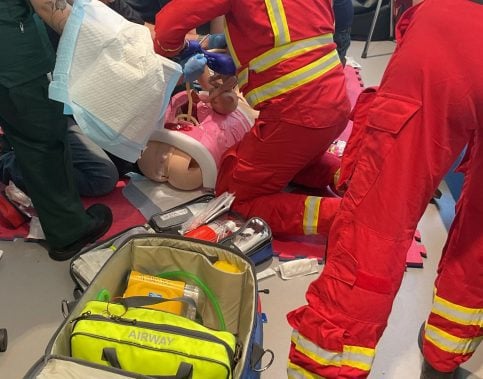
Why training matters
Training days like this are vital to maintaining the proficiency and confidence of critical care teams. These high-pressure scenarios allowed participants to strengthen their skills, learn from debriefs led by experienced doctors, and mentally prepare for real-world emergencies. By investing in ongoing education and practice, the team ensures they are ready to deliver exceptional care when it matters most.
Thanks to your support, our teams can train in the advanced procedures that make a lifesaving difference to those we serve.
